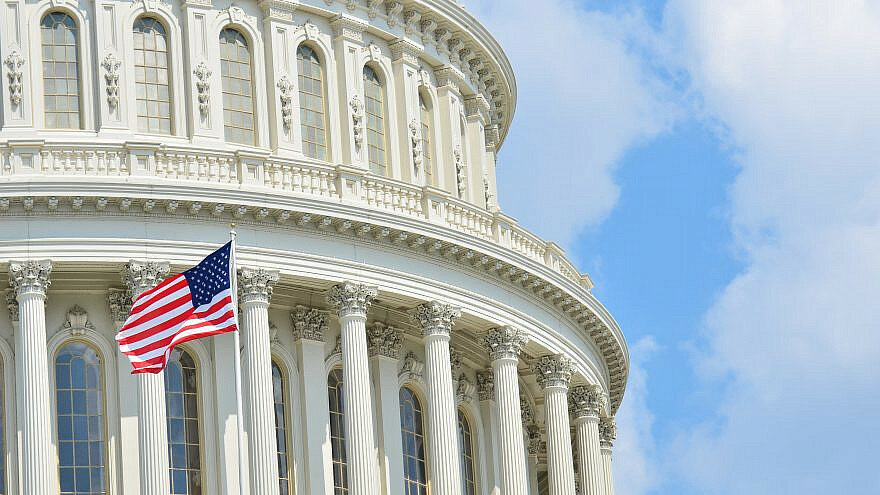Latino-Jewish panel returns to Congress
A bipartisan group of House members gathered at the Rayburn House Office Building on April 27 under the auspices of the Latino-Jewish House Caucus to discuss shared connections between the two communities.
The event was billed as relaunching the caucus, which takes place every new congressional session. The American Jewish Committee helped found the caucus, which has 25 members, in 2011.
Caucus leaders Reps. Mario Díaz-Balart (R-Fla.), Adriano Espaillat (D-N.Y.), Tony Gonzales (R-Texas) and Debbie Wasserman Schultz (D-Fla.), in addition to diplomats and Latino community leaders, talked about the importance of their work together.
Wasserman Schultz, who gushed over her decades-long, close relationship with fellow Florida delegate Díaz-Balart, said “the spirit of collaboration that our constituents demonstrate every day” inspired the caucus.
She called Weston, Fla., “Westonzuela” because of the large number of Venezuelan residents.
“The story of my neighborhood is woven from our shared histories of resettlement and acclamation, and colored by our shared values of family, faith and freedom from persecution,” she said.
Wasserman Schultz compared European Jewish flight from “pogroms and persecution” to Latin Americans escaping from “despotism and destitution.”
Gonzales, who represents a Latino-majority district along the Mexican border, told JNS that Jews and Latinos share a strong emphasis on the importance of the family.
“The No. 1 thing for me is family. In San Antonio, our family goes to the Jewish Community Center,” said Gonzales, who is Catholic. “Strengthening the family unit is a good start across all political spectrums, and clearly, across the globe.”
In a statement, Ted Deutch, CEO of the American Jewish Committee and a former co-chair of the caucus when he was a congressman, said that Jews and Latinos “stand stronger together thanks to our shared histories, values and interests.”
“When it comes to fighting the scourge of antisemitism and hate against Latinos, my former colleagues have shown time and again they will fight extremism and intolerance in whatever form it takes,” he stated.
Díaz-Balart told JNS that the caucus can use its bullhorn to educate constituencies, especially about fighting Jew-hatred.
“It’s important to make sure that the facts about Israel, the facts about Jews, are disseminated to all communities in our entire country,” he said. “The way to make sure that we fight antisemitism is to get the facts out because the facts are on our side. And they’re on our side when it comes to Israel, by the way.”
Noting his co-sponsorship of the recently introduced Holocaust Education and Antisemitism Lessons (HEAL) Act, Espaillat spoke about a Latino-majority high school, some 10 blocks north of Yeshiva University, in what he said was once the heart of a Jewish neighborhood in his district. He helped introduce a pilot program on Holocaust education at the school.
The principal and teachers told Espaillat that the students were “empowered by learning about the Holocaust,” he said.
“They knew nothing about it. Some of them don’t know the names of the concentration camps,” he said. “It brought them closer together to the Jewish community there, and that’s how you fight back — not just by legislation or the budget process, not just by being right on public policy — but by educating young people about the horrors of antisemitism and the Holocaust.”
Luis Almagro, secretary general of the Organization of American States, told attendees that Cuban, Nicaraguan and Venezuelan regimes “tolerated, if not encouraged” antisemitism, and it is no accident that they ally with and receive support from Iran and its Islamic Revolutionary Guard Corps.
Eliav Benjamin, deputy chief of mission at the Israeli embassy in Washington, noted that half of the four countries that have moved their embassies to Jerusalem are Latin American: Honduras and Guatemala.
“We are two communities with a rich history and culture, and there is much we can learn from each other,” he said. “Our common values of family, education and hard work have allowed us to make significant contributions. However, we also face challenges that can only be addressed through collaboration and understanding.”






